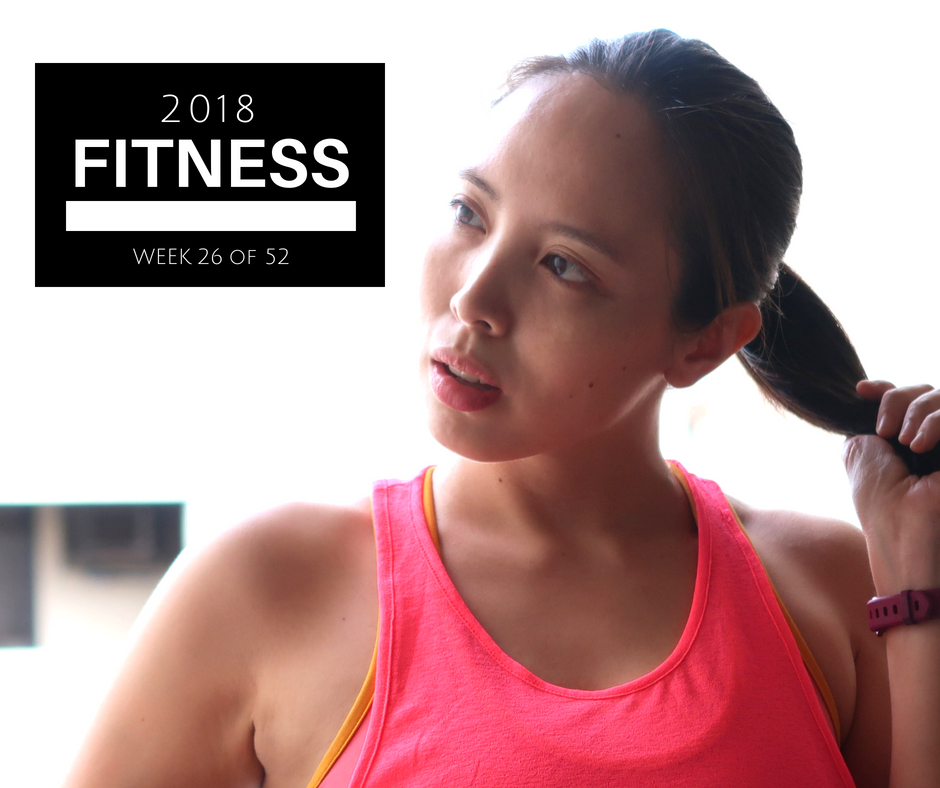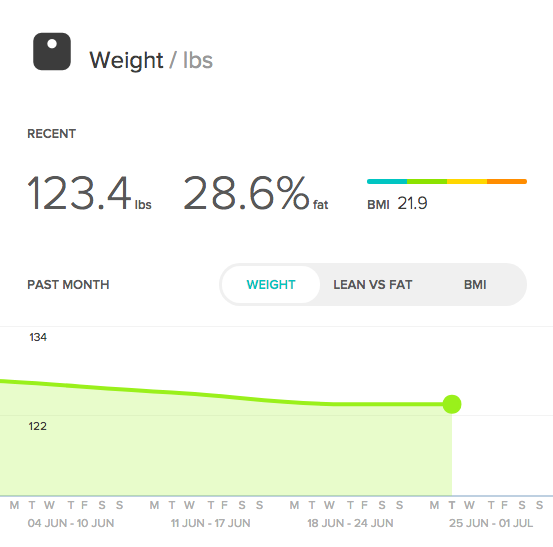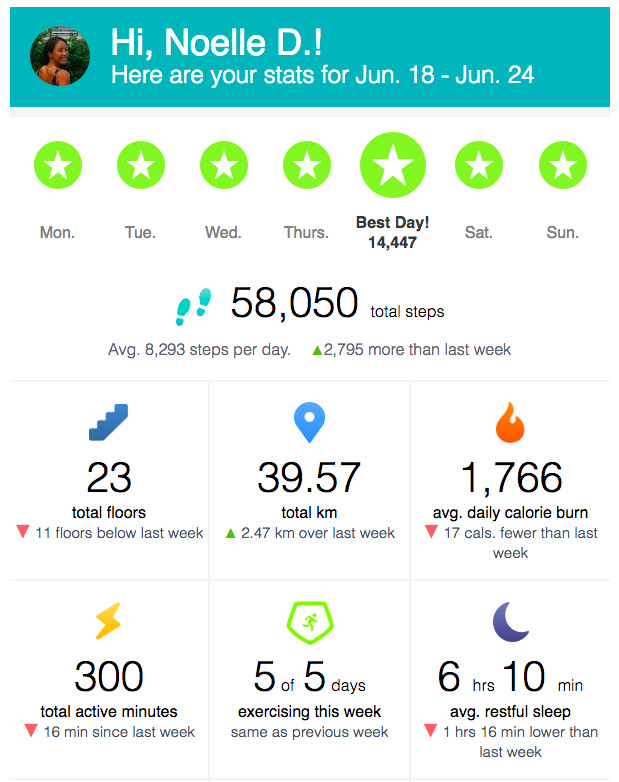The second week of a training program, you start getting into a really good rhythm. You know what is expected of you and your body isn’t as resistant to the exertion. This boosts self-confidence and the determination to stick with it.
The two-week mark is pretty significant to people who are trying to build fitness and/or lose weight also. Apparently, for most people they start seeing results in two weeks. I certainly am happy to report that I’m finally back under 125 pounds even without exercising myself half to death. Of course it’s also important to mention that I haven’t been stress-eating (which was the main reason why I found it so hard to lose weight for so long).
I’m not the kind of person who obsessively tracks numbers except for when I run with my Garmin (to upload to Strava, you know?), but I’m thankful that my Fitbit passively tracks my activity. I still only sync every three days (or when I remember to charge my Fitbit) but it’s nice to see how my overall wellness is trending. Last week, for instance, my numbers looked like this, according to Fitbit:
I’ve hit my step count target every single day, I’ve increased total kilometers, I’ve exercised five out of the target five days. Looks great, right? But also notice I’ve gotten less sleep. Now that’s something I’ll need to work on.
As with racing, you can’t control certain things: the actions of your fellow competitors, the conditions, the nail on the road that causes the flat tire, etc. However, there’s a lot you can control: your training so you can deal with heat, cold, or wind, bringing spare tires and learning how to change them, practicing with your nutrition, and more.
While there are things that are out of our hands (like genetics, the long commutes in Manila, unexpected work assignments and family affairs, getting exposed to the cold virus, etc.), it’s important to know that there are still things that we can control so we can take ownership of our fitness.
Wearables like Fitbit measure and quantify your life, so to speak — but it’s up to you how you intend to act on this knowledge. While it’s not too good to obsess over numbers, it’s important to see the data so you know what you’re doing to yourself. And yes, in the end we all exercise ultimate responsibility over our wellness. You still have to do the work. (Or in my case, the sleep. Hahaha!)



